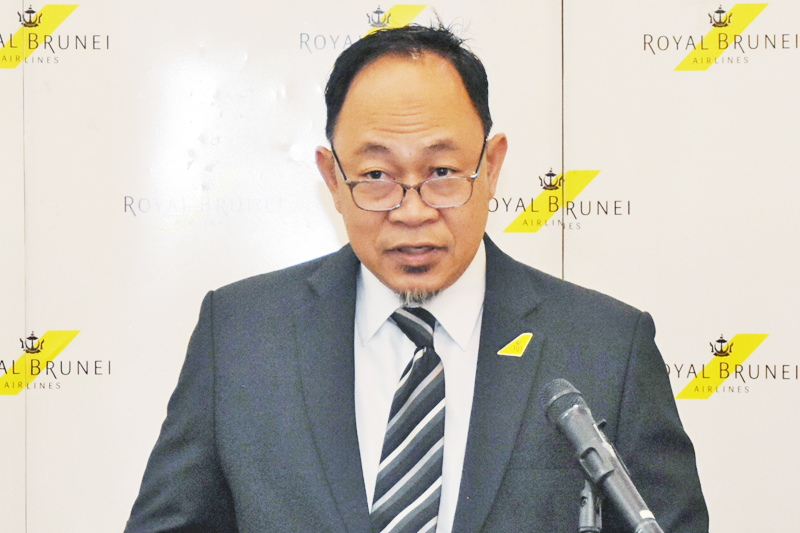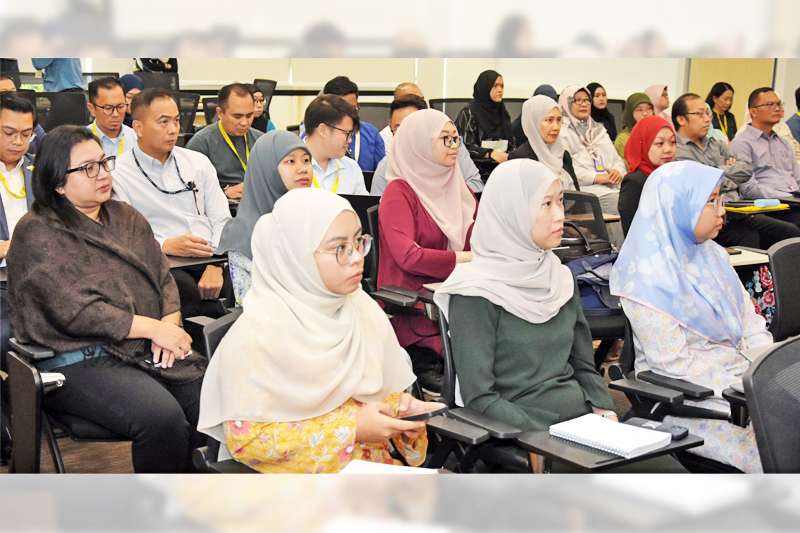By Sim YH –
BANDAR SERI BEGAWAN, 24 OCT – Royal Brunei Airlines (RB) together with the International Air Transport Association (IATA) and the Department of Civil Aviation hosted the IATA Sustainable Aviation Fuel (SAF) Capacity Development Session which took place at the RB Campus, today .
The SAF capacity building session reaffirmed its commitment to sustainable aviation and global efforts towards reducing carbon emissions.
The session brought together aviation leaders, industry experts and policy makers to discuss the critical need for the production and adoption of SAF as a key element in the decarbonisation of the aviation industry.
With the world facing the effects of climate change, RB continues to lead efforts to reduce its environmental carbon footprint.
The workshop is part of RB’s ongoing strategy to raise awareness of achieving net zero carbon emissions by 2050 in line with the global targets set by IATA and the International Civil Aviation Organization (ICAO).


RB’s Chief Executive Officer, Captain Sabirin bin Haji Abdul Hamid in his welcome speech stressed the importance of collaboration between airlines, the government and fuel producers to speed up the adoption of SAF.
Climate change, he added, is real and it requires immediate action with aviation having an important role to play in reducing carbon emissions and SAF is key to that effort.
“By 2050, SAF will contribute 85 percent of the emissions reduction required to meet the net zero target. We need to work together to increase production, ensure supportive policies and generate awareness among consumers about their carbon footprint,” he said.
SAF is a cleaner alternative to conventional jet fuel, which is made from renewable raw materials and can reduce life cycle carbon emissions by up to 80 percent.
At the workshop, experts from IATA, Boeing and other industry partners discussed the latest developments in SAF technology as well as challenges and opportunities for SAF production in Brunei.
RB has taken significant steps towards sustainability including introducing fuel-efficient aircraft and operational improvements to reduce carbon emissions.
RB’s adoption of SkyBreath software has optimized flight operations, reducing fuel consumption and emissions.
In addition, RB will receive four Boeing 787-9 aircraft with more fuel efficient engines by 2028, further strengthening its commitment to greener skies.
The session also highlighted Brunei’s potential to develop its own SAF industry, leveraging the country’s existing resources and infrastructure to produce low-carbon aviation fuel. With the aviation sector expected to require 87 percent of its fuel demand from SAF by 2050, Brunei could benefit from the development both economically and environmentally.
In his closing words, Captain Sabirin emphasized the collective responsibility of all stakeholders with decarbonization no longer just an option but an obligation to us.
The success of SAF, he added, will depend on collaboration across industries and sectors and the workshop being held is an important step towards making that vision a reality.
